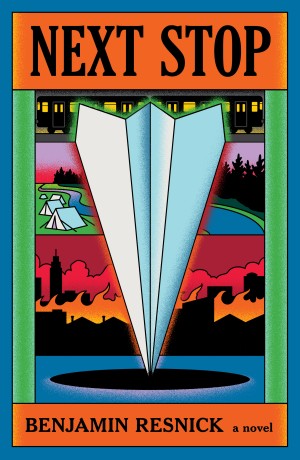September 1, 2020
Prior to his death in 1945 and assuming his ultimate victory in the war, Adolf Hitler outlined his plans for the creation of a museum, memorializing the elimination of the Jewish scourge from the planet. The Museum of An Extinct Race imagines a world where just such an eventuality has transpired, in now Nazi-dominated 2017. Its two protagonists‚ Dano Adamik, a Czech native coerced into curating the museum and Eva Novak, a museum docent with Jewish heritage‚ inhabit a beaten, subjugated society, dominated by a self-proclaimed, super race. The novel conjures a coterie of rebels struggling to resurrect human morality.
Through scenes portraying a stark, anti-civilization, the novel plunges into a world absent of Jews, yes, but moreso a planet bereft of the ethical guidance of Judaism.
The novel is neither another holocaust story nor an alternative history treatise, but rather an exploration of a forever endangered culture through the eyes of conflicted souls submerged in a fragile love story. Moreover, it serves as a call to passive, preoccupied Jews to reclaim their heritage and as a stimulus to non-Jews to discover what all the fuss has been about.
Discussion Questions
Courtesy of Jonathan Hale Rosen
- How close were the Nazis to obtaining nuclear weapons prior to the US and therefore how realistic is the book’s scenario?
- Does Eva too quickly forgive Dano for his past sins?
- There’s a general theme of protagonists (Dano, Father Slavecik, Cornelius Gurlitt) rationalizing their actions by proclaiming that they were preserving a legacy that otherwise would be destroyed. Is that justifiable?
- Is Eva’s decision to have an abortion morally acceptable? Under Jewish law?
- The novel presents the issue of Jewish persecution throughout the centuries as unjustifiable. What are the underpinnings of anti-semitism that has allowed it to persist through the centuries?
- What is your sense of the quotation at the beginning of the book: “If God is God, He is not good; If God is good, he is not God.”?
- As Eva states, humanists — those with a morality independent of religion — are destined to go to their graves a solitary voice, due to the absence of formal religion and God’s authority. Is it true that moral people have no ability to transmit their morality to future generations?
- Has religion, as Dano states, been responsible for more havoc and destruction throughout history, outweighing the positives it has promulgated for humanity?
- What makes Judaism relevant today? Why do so many Jews gravitate to different religions?
- Why are there so many disaffected/alienated/indifferent Jews now?
- Eva states that she is not sure where Judaism stands on the issue of heaven and hell.
- Does Judaism postulate a heaven and hell? If not, what does that signify?
- What is the Jewish identity independent of the litany of its historical persecution and the Holocaust?




